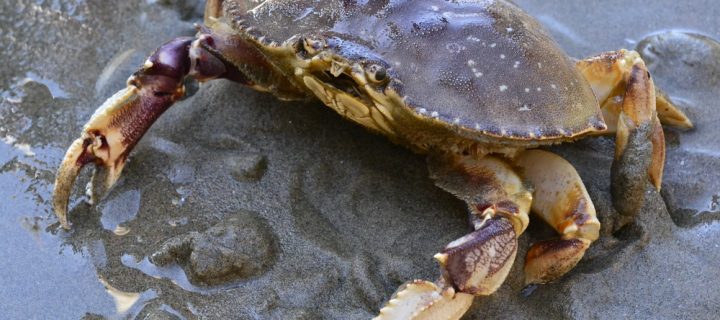Put your seafood craving on the back burner and just grab some frozen fish sticks for the moment. The California Department of health has sent out a warning on the cusp of the recreational crab season today, stating that Dungeness crab and rock crab caught along the coastline between Oregon and the southern border of Santa Barbara County currently contain deadly amounts of domoic acid.
“Delaying or closing the season is disappointing,” said Craig Shuman, marine regional manager of the state Department of Fish and Wildlife. “But public health and safety is our top priority.”
Domoic acid is a substance produced by algae that accumulates in shellfish, sardines, and anchovies. Exposure to the biotoxin can lead to poisoning that affects the brain, causing seizures, and possibly leading to death.
The first reported outbreak of domoic acid poisoning in North America occurred in 1987 when contaminated shellfish from Prince Edward Island, Canada, were consumed. Three people died and over 100 people developed various toxic symptoms at the time and so the recent warning is no joke.
Sfgate.com notes that on the mild side, eating toxic crabs can cause vomiting, diarrhea, abdominal cramps and headaches, with symptoms that can stick around for days.
Severe poisoning that doesn’t kill you can still cause permanent short-term memory loss, coma, and seizures.
Officials say they don’t know when the toxicity will subside.
The ban is a big blow to coastal crabbers who are hoping to start their Bay Area commercial crabbing season with 600 boats on November 15th. Crabbers have been pouring in from Oregon, Washington and as far as Alaska with the hope of earning up to half their annual income, a report states, with a lot of that crab going to local restaurants.
The crabbing industry grosses about $60 million a year.
As soon as the ban is lifted, things can get rolling but until then, seafood fans and workers alike will just have to cross their fingers-and reach for those imitation crab sticks.
Photo credit: Jennifer Nicole Buchanan/Shutterstock












